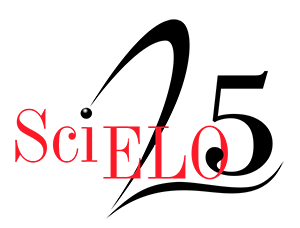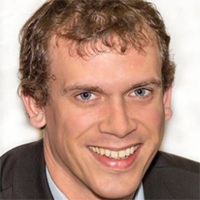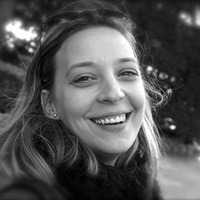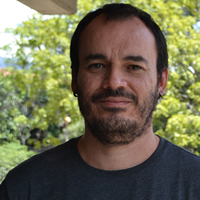
Close

Learning Society


The webinar will explore the impact of open science and scholarly communication initiatives in propelling the fulfillment of the UN Sustainable Development Goals (SDGs).
About
The webinar will explore the impact of open science and scholarly communication initiatives in propelling the fulfillment of the UN Sustainable Development Goals (SDGs). Moreover, it will shed light on how these initiatives can effectively bridge the gaps between science, technology, and innovation. In this session, we will highlight cutting-edge custom bibliographic search methods and frameworks, devised to map SDG efforts and research programs.
Agenda
11:00 – 11:03 Welcome and introduction, Wouter Schallier (ECLAC) [VIDEO]
11:03 – 11:18 Using bibliometric analysis to assess research targeting the Sustainable Development Goals, Carlos Henrique de Brito Cruz (Elsevier and Unicamp) [VIDEO] [DOWNLOAD]
A common challenge for research organizations is how to assess and plan their efforts towards contributing research results that may assist the achievement of SDGs. We will show how customized bibliographic searches can assist research performing organizations, research funders, and governments in mapping their efforts and following up plans that target SDGs.
11:18 – 11:33 2021 UNESCO Recommendation on Open Science: An international framework for equitable scholarly communication and acceleration of the achievement of the SDGs, Ana Peršić (UNESCO) [VIDEO] [DOWNLOAD]
Recognizing Open Science as a true game-changer in addressing the pressing planetary and socio-economic challenges, the 193 Member States adopted the first international standard-setting instrument on Open Science, the 2021 UNESCO Recommendation on Open Science. The Recommendation defines shared values and principles for Open Science and identifies concrete measures on open access and open data, with proposals to bring society closer to science and commitments to facilitate the production and dissemination of scientific knowledge worldwide. In her presentation, Dr Ana Persic will talk about UNESCO’s vision of using UNESCO Recommendation on Open Science as a tool to accelerate the achievement of the UN SDGs and to strengthen the links between science and society and bridge the science, technology, and innovation (STI) gaps.
11:33 – 11:48 Research on the impact of the Sustainable Development Goals from the perspective of scholarly communication, Gabriel Velez Cuartas (Universidad de Antioquia) [VIDEO] [DOWNLOAD]
Several research programs have developed strategies to link the dynamics of scientific publication and the Sustainable Development Goals (SDGs). Examples of this have been the experiences of STRING, the TIPC team, SDGontologies, Scopus indicators through its Pure platforms, among others. Although the intentionality of finding a direct relationship between the SDGs approaches and research development in these fields, it is true that the methodologies used to not accurately account for the real possibilities of converting what is found through semantic methods into applied knowledge. It is proposed to develop methodologies that link semantic exploration with the development of social network analysis to evaluate the linkage generated in these communication products through co-authorships and, if applied to the field of patents, co-creations to observe the different social sectors related to scientific research.
11:48 – 12:25 Panel discussion and dialogue with the audience moderated by Wouter Schallier (ECLAC) [VIDEO]
12:25 – 12:30 Closing, Wouter Schallier (ECLAC) [VIDEO]
Chair

ORCID: 0000-0002-1480-2093
Wouter Schallier is Head of the Hernán Santa Cruz Library at the Economic Commission for Latin America and the Caribbean (ECLAC), United Nations, in Santiago, Chile. Between 2008 and 2012, Wouter Schallier was Executive Director of LIBER (Association of European Research Libraries) in The Hague, The Netherlands. He secured funding from the European Commission for 7 innovation projects. As head of ECLAC's Hernán Santa Cruz Library, he launched the Digital Repository (https://repositorio.cepal.org/), which provides open access to all ECLAC publications. Between 2015 and 2017, Wouter Schallier coordinated the Latin American and Caribbean chapter of the LEARN project (http://learn-rdm.eu/en/about/) on Research Data Management, funded by the European Commission. He is an active participant in the open science community, taking the lead on various activities in Latin-America and the Caribbean. In 2016, he started a monthly webinar series to strengthen capacity building which is still ongoing.
Speakers

ORCID: 0000-0001-8042-1638
Carlos Henrique de Brito Cruz is the Senior Vice-President, Research Networks, at Elsevier and a Professor Emeritus at the Physics Institute, Unicamp, Brazil. He directed the Physics Institute at Unicamp, was the VP, Research, the President of the Fundação de Amparo à Pesquisa do Estado de São Paulo, FAPESP, and the Rector of Unicamp. From 2005 to 2020 he has been the Science Director at the Fundação de Amparo à Pesquisa do Estado de São Paulo, FAPESP. Brito Cruz is a member of the Academia Brasileira de Ciências, of The Academy of Sciences (TWAS), a Fellow of the AAAS, and Fellow of the American Physical Society. He received the Ordem Brasileira do Mérito Científico, the Ordre des Palmes Académiques and the Order of the British Empire (OBE).

Dr Ana Peršić is Programme Specialist at the Section of Science Technology Innovation Policy at the UNESCO Headquarters in Paris. An ecologist by training (Master in Ecological Sciences at the Università degli Studi di Padova, Italy and PhD in Ecotoxicology at the Université Paris-Sud, France), Dr Ana Peršić joined UNESCO in April 2006 as Assistant Program Specialist serving the UNESCO’s Man and the Biosphere Programme within the Division of Ecological and Earth Sciences. She then served as Science Specialist at the UNESCO Liaison Office in New York from 2011 to 2018. Her work relates to strengthening the science-policy interface and the promotion of science technology and innovation in the implementation of the Sustainable Development Goals. Since 2019, her focus has been on open science – she coordinated the development of the UNESCO Recommendation on Open Science and is currently working towards its implementation.

ORCID: 0000-0003-2350-4650
Associate professor in the Sociology Department at the Universidad de Antioquia. Scientific advisor to the Colombian Observatory of Science and Technology. Former advisor of the National Program of Science, Technology and Innovation in Social Sciences, Humanities and Education of the Minciencias en Colombia. PhD in Social and Political Sciences. Coordinator of CoLaV, Colaboratorio de Vinculación para las Ciencias Sociales Computacionales. Visiting Professor at Universidad Autónoma de Zacatecas, Cinvestav, Universidad Iberoamericana de León in Mexico, Zeppelin University in Germany, Complutense de Madrid in Spain, Universidad de la Frontera in Chile, among others. He has collaborated in projects with professors from the University of Amsterdam, Transformative Innovation Policy Consortium, FOLEC-CLACSO, Ministries of Science and Technology of Colombia and Argentina, AMELICA, among other projects and institutions. His research topics: accountability metrics, university-environment metrics, scientometrics and social and historical studies of science, network analysis, theories of communication and meaning.
Code of Conduct
It is expected that all participants in events promoted by SciELO follow our Code of Conduct.